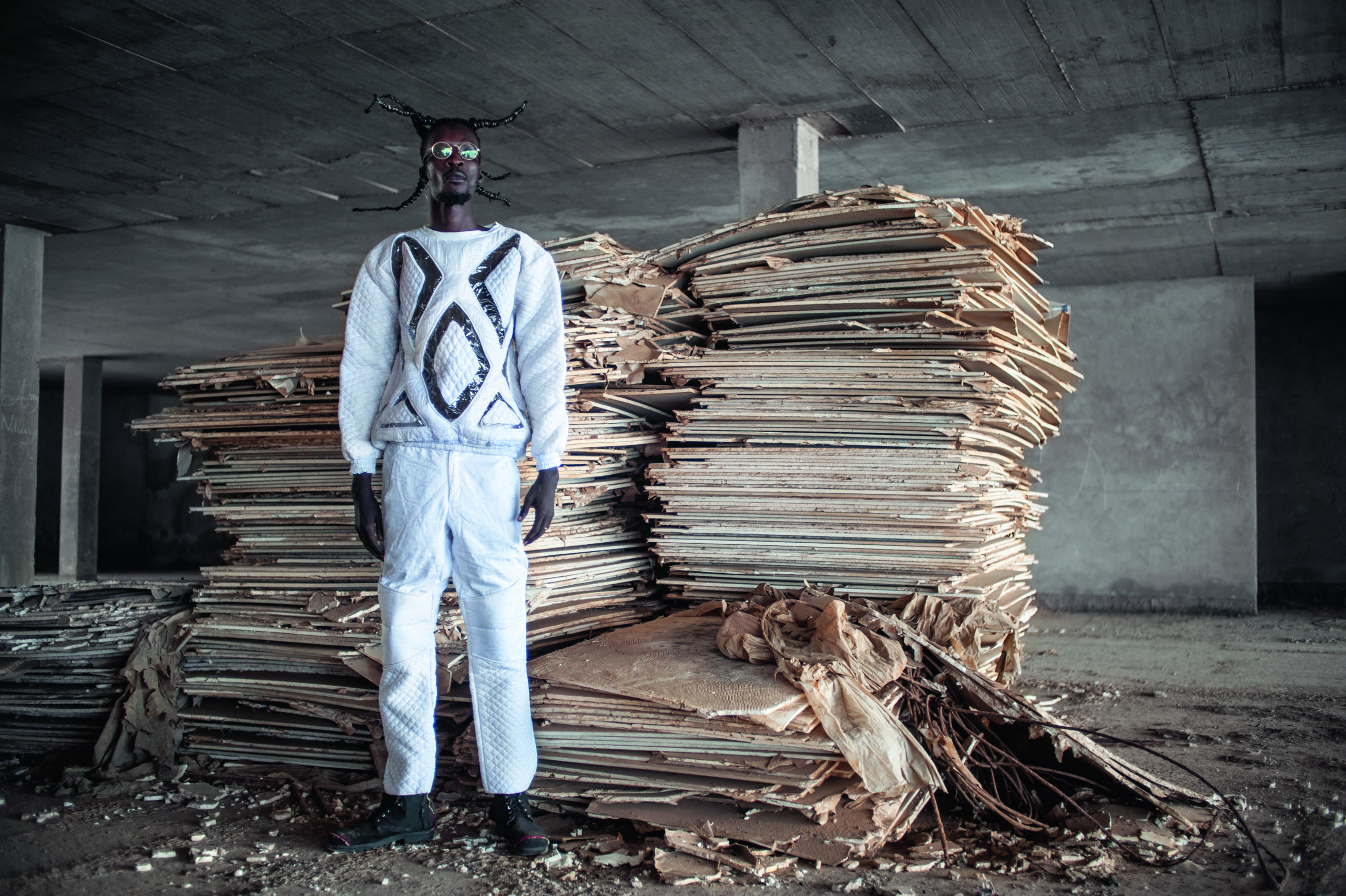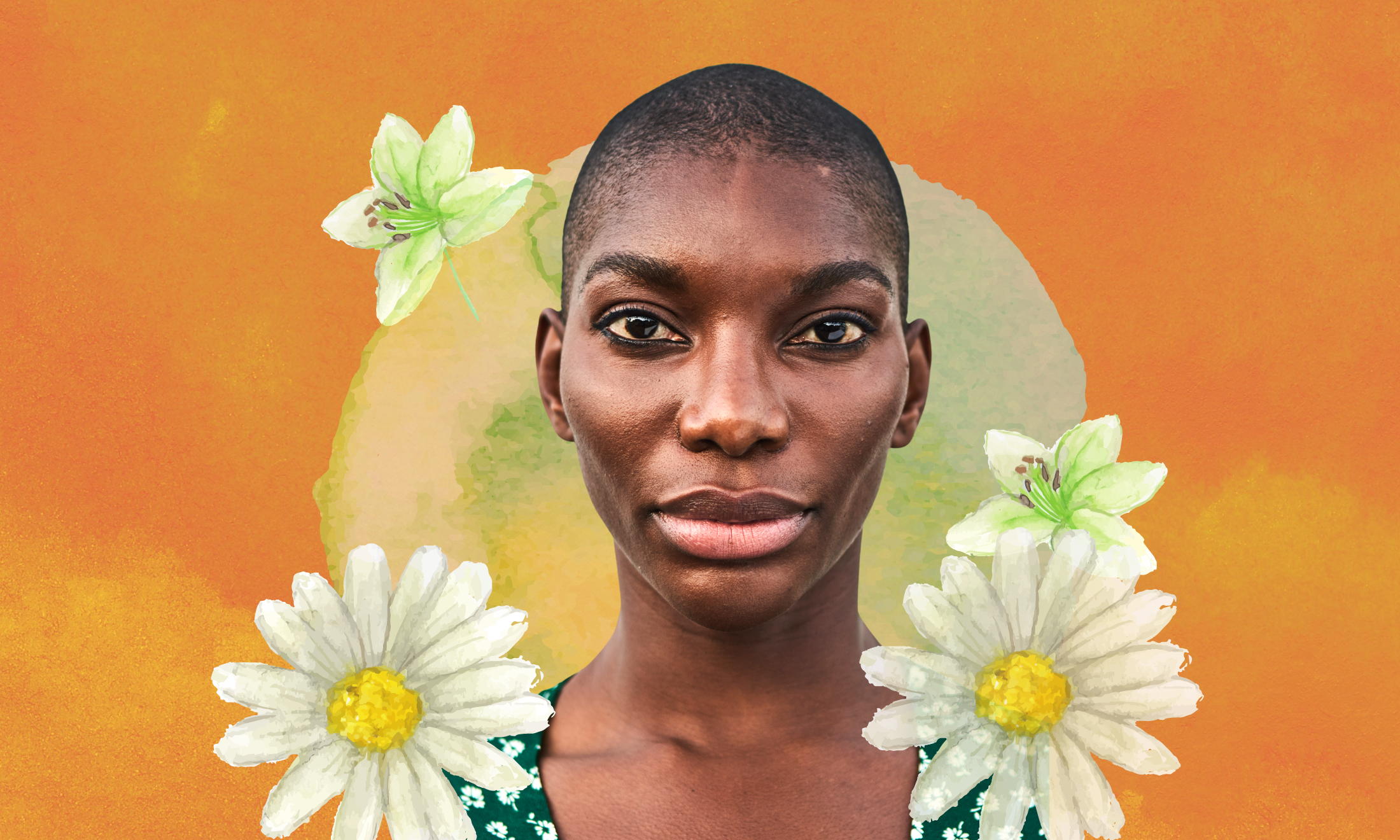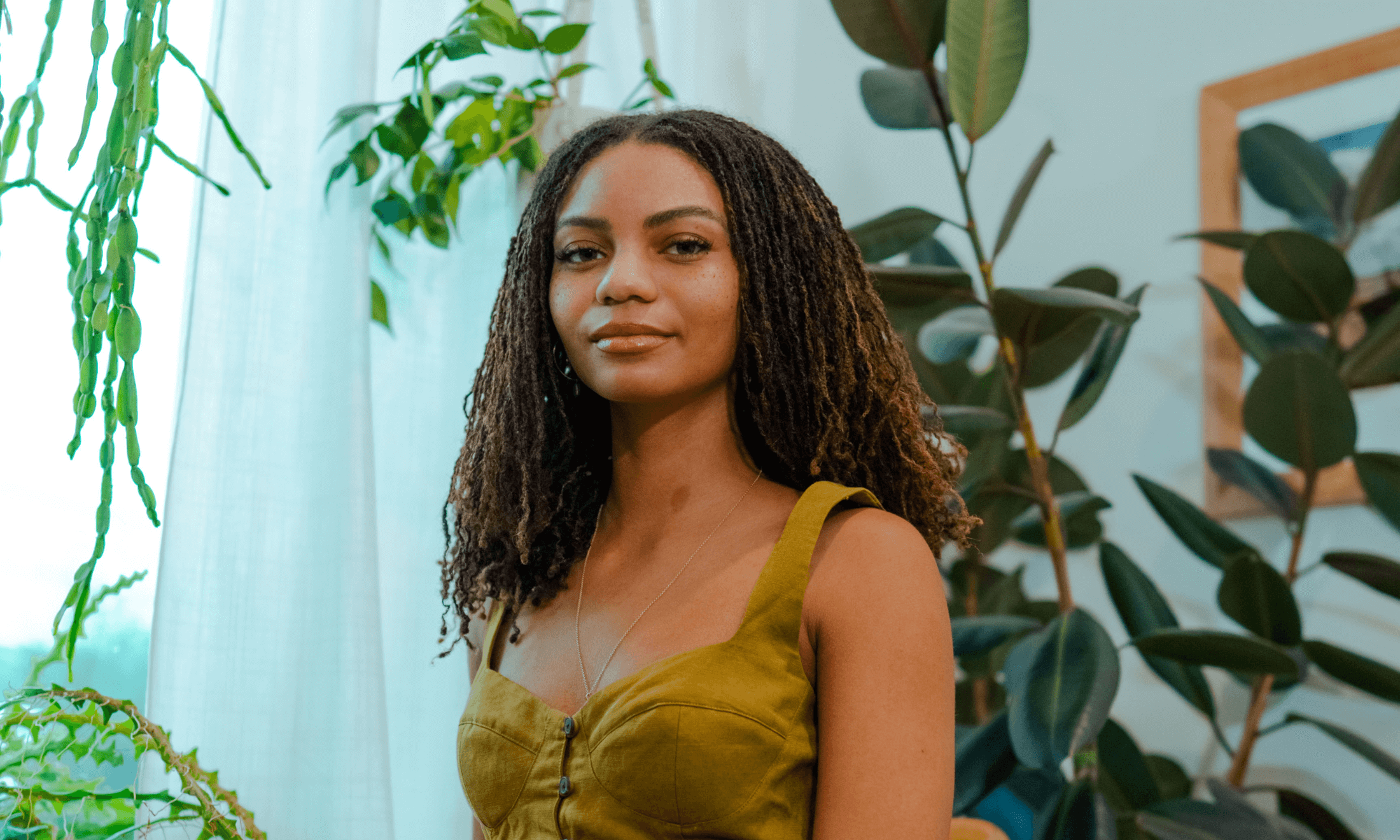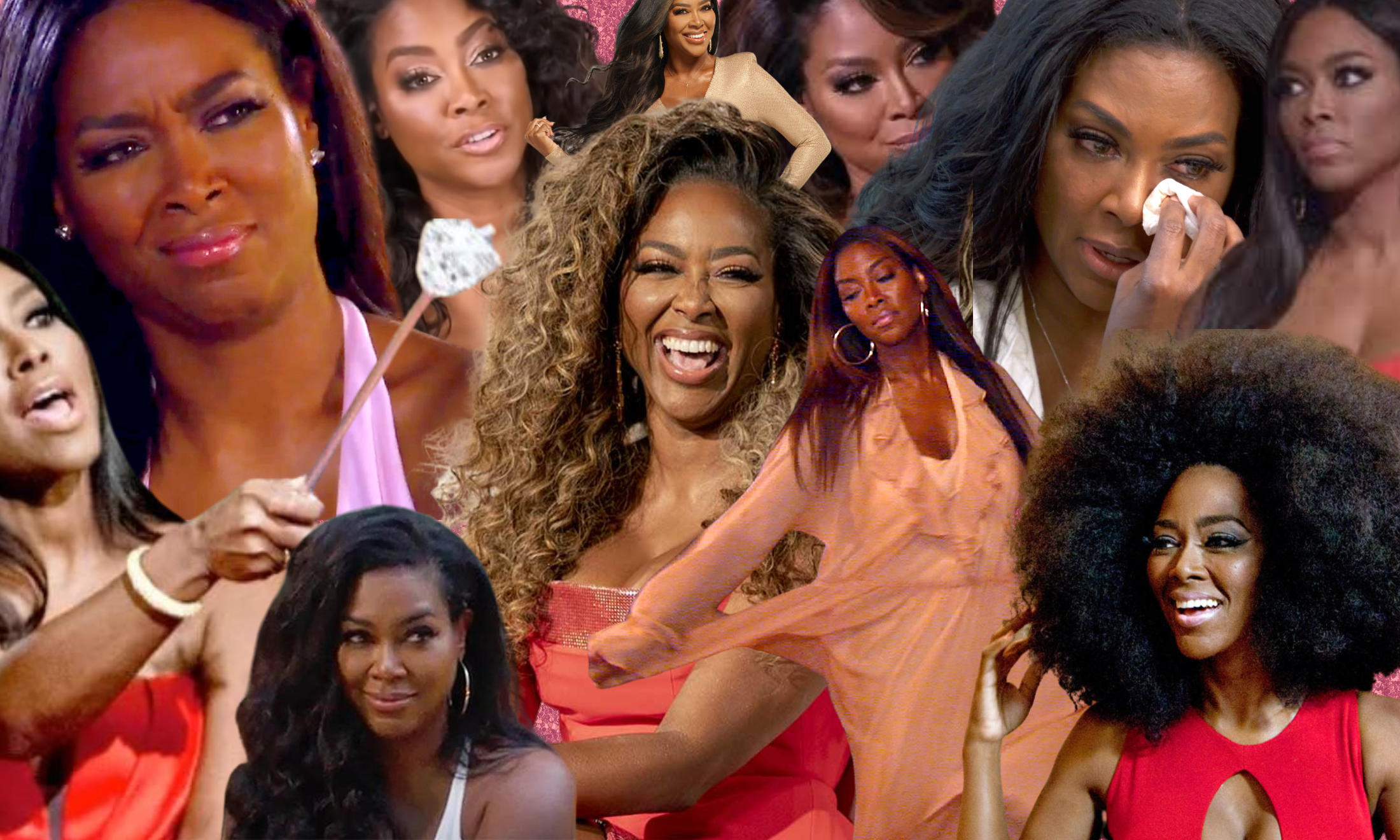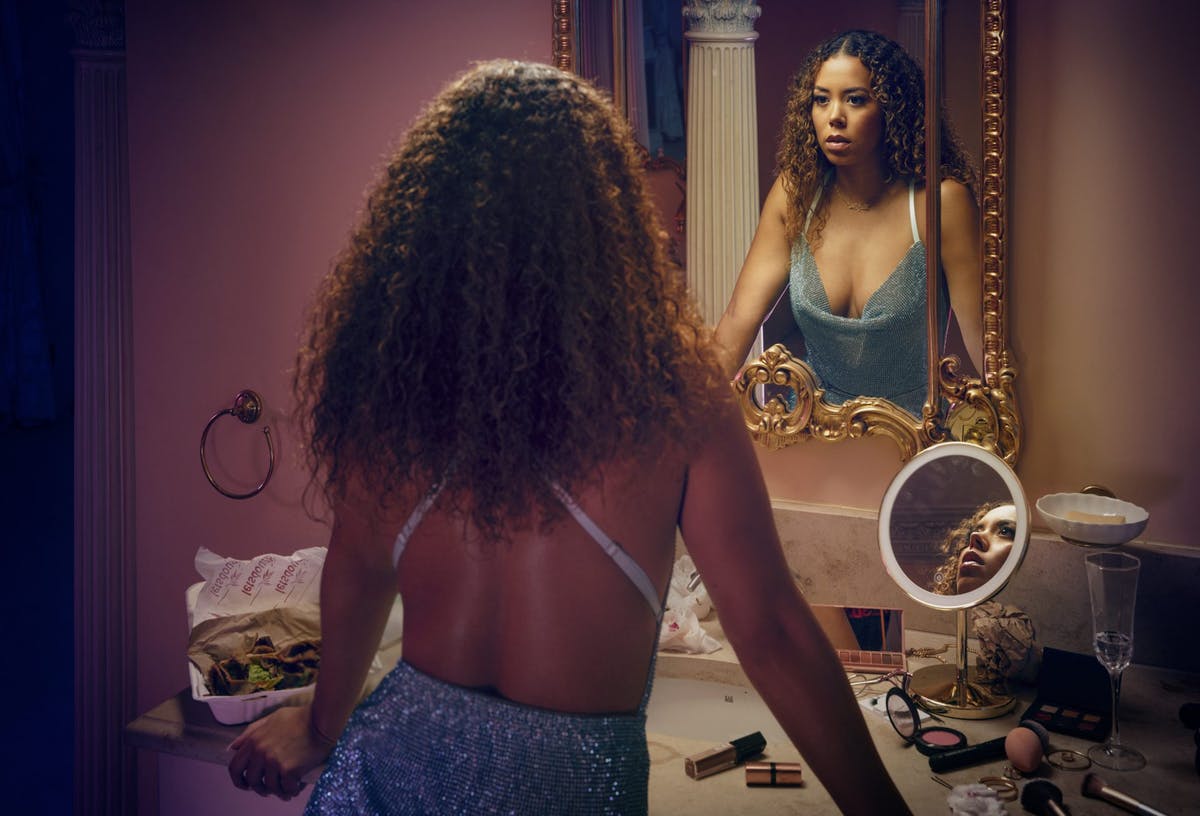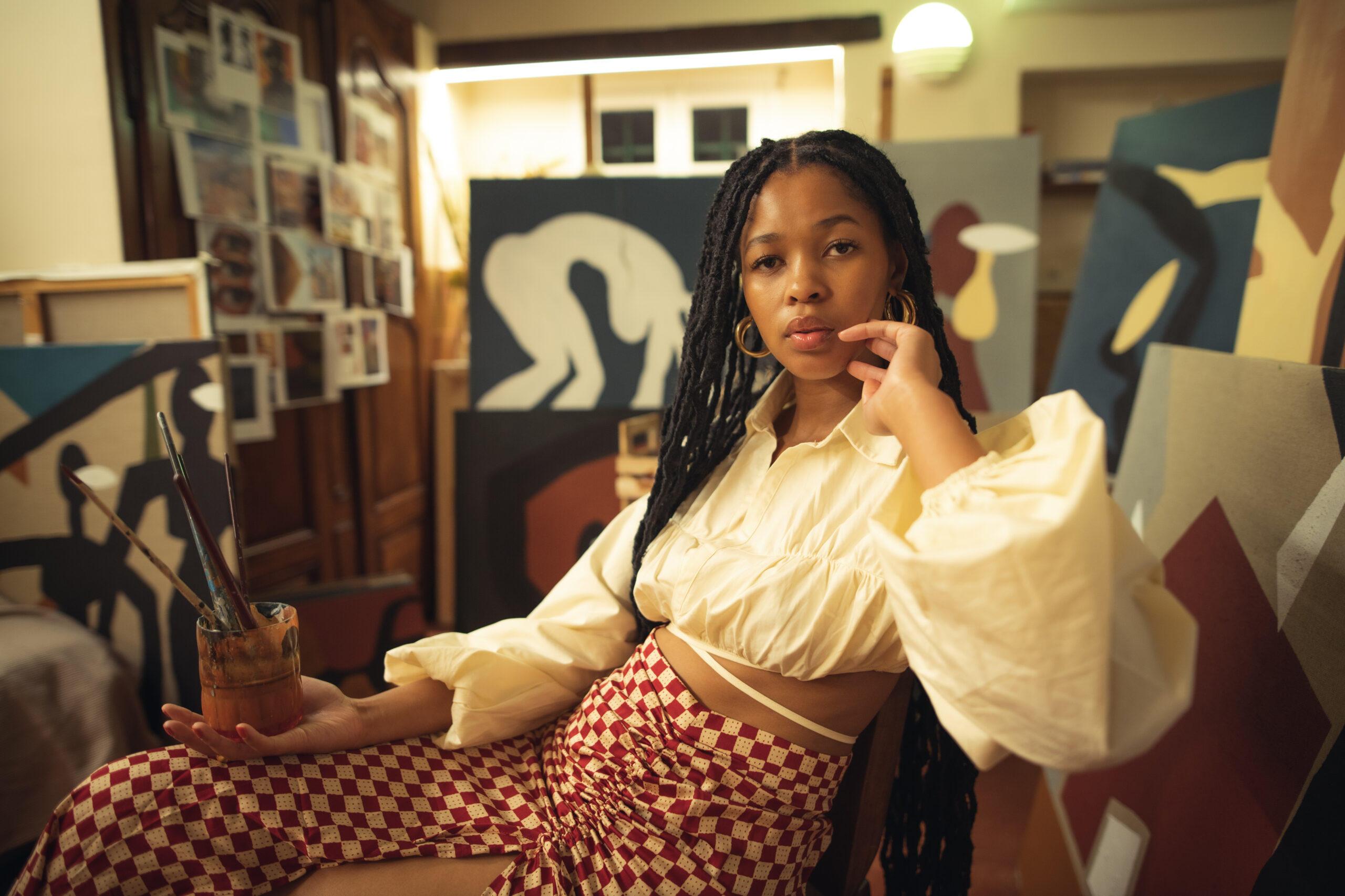
Photography by Shaniqwa Jarvis
Did you know that Tessa Thompson invented range?
She's done both a big-budget Marvel and a surrealist anti-capitalist indie. Played a civil rights activist and vagina pant video vixen. Now the actress is producing black women's stories.
Sagal Mohammed
17 Jan 2022
First impressions are everything, according to Solomon Asch’s Impression Formation theory of 1946. That instant energy you feel when you interact with someone for the first time is believed to be the most accurate indication of their true character, a reflection of who they are. For Tessa Thompson, it is this exact feeling that determines the roles she picks. Though unlike the pleasant feelings you hope for when meeting a new character, she’s enticed by those that frighten her. “What I really love is to just be scared,” she says, referring to the moment she’s introduced to a new character in a script. “I love to get a job and immediately feel terrified that I can’t do it.”
Another clincher for the actor, whose on-screen catalogue stretches from critically-acclaimed TV (Dear White People, Westworld) to major Hollywood productions – most recently Rebecca Hall’s Oscar-tipped directorial debut, Passing – is centring herself in spaces where she, and women like her, have historically been unseen. “I think a lot about where we haven’t been before, particularly Black women and what spaces we haven’t been inside of. I can trace a lot of my career decisions to that.”
A brief reflection on Tessa’s impressively varied filmography can vouch for this. She played Marvel’s first openly LGBTQ+ superhero, Valkyrie, the inherently intelligent Agent M in Men in Black: International (the woman-alternative to Will Smith’s J in the original 1997 movie), civil rights leader Diane Nash in Ava DuVernay’s Selma and radical artist and activist Detroit in Sorry To Bother You, Boots Riley’s provocative examination of tech-driven capitalism and white supremacy. Then there was the time where she emerged from Janelle Monáe‘s vagina in the 2018 music video for ‘Pynk’. Every move she has made professionally has been an intentional step towards dismantling Hollywood’s anti-Black and patriarchal status quo, simultaneously displaying the depths of her talents along the way.
We’re talking over Zoom, where Tessa is in her Los Angeles home, sitting on an art deco-esque green velvet sofa. She’s wearing a checkered blazer over a soft pink blouse that somehow perfectly matches her eyeshadow, and greets me with the kind of warm welcoming smile you’d expect from an old friend. We’re eight hours apart and divided by a computer screen yet still, her cheerfulness and natural charisma boosts my energy from my London bedroom as we exchange energetic smiles.
“I put a large premium on the idea of freedom and feeling like I’m free to be who I am”
This confidence, however, isn’t something the 38-year-old movie star has always possessed but rather a trait she has leaned into with age. Speaking of her younger self getting to know Hollywood she had an idea of what it took to be successful and visible. “Especially when it came to beauty standards,” she explains. “That’s something that I really felt really hemmed in by.” She’s long been vocal about the limitations put on women and actors of colour in the stories they’re given space to tell, though she’s witnessed “cultural conversation shifting” which keeps some of the things she formerly perceived as inadequacies at bay.
Her performance in Passing, in which she portrays Irene Redfield, a Black woman quietly manoeuvring through an emotional reckoning in 1920s Harlem, is a prime example. Shot in black and white, the Netflix production is an adaptation of Nella Larsen’s 1929 novella of the same name, which explores the nuances of racial identity and the ways it can be manipulated. Despite its flattened hues, the story is a vibrant portrait of the Harlem Renaissance, as Irene bumps into an old black friend, Clare, who has been posing as a white woman unbeknownst to her racist husband. And Irene is intrigued, envious and perhaps infatuated by the protagonist played expertly by Ruth Negga.
“[Playing Irene] was such an incredible challenge and so different from anything I’ve ever done before,” she tells me. “As myself, I put a large premium on the idea of freedom and feeling like I’m free to be who I am. Obviously, there are always varying degrees of success in that, but that’s something that feels important to me, so it felt really interesting to understand Irene.”
The role called for Tessa’s ability to display the quiet vulnerability that Irene hides beneath the surface. Her emotions are constrained yet must be relayed to the audience – a tough task for any actor and precisely why Tessa was so drawn to it. She references a quote from Kristen Dunst about digging into feelings of her own lack of self-worth and understanding to step into character in the film Power of The Dog, a performance Tessa was inspired by. “I think it’s unfortunately really rare to get to see a Black female protagonist on screen and really look at her interiority and all of the murky places inside of psyche,” she says. “I’ve been so influenced by those performances [like Kristen’s] and those pieces of work. I love the work of Todd Haynes [the American filmmaker] and the way that he is able to capture women on screen. I just haven’t gotten to see a lot of narratives where you see a Black woman’s interior life and I’ve been wanting to make a piece of work like that for a really long time.”
In 2021, Tessa launched her own production company, Viva Maude – a passion project she hopes will change the industry’s landscape for people of colour. Having dipped her feet into producing in projects she has starred in, from Passing and Sorry To Bother You, to Amazon Prime’s Sylvie’s Love, she made the decision to delve deeper into behind-the-scenes work during lockdown. “It’s something that I’ve wanted to do for some years. I didn’t even know if it needed to be a company necessarily but I just knew that I wanted to focus more squarely on producing. As an actor, it was more about where we have not been as Black women and how I can get us there, but now the ‘us’ is much bigger than me. I want to create spaces for so many different kinds of Black women, because we are not a monolith to be seen on screen and I do feel really conscious that some Black women don’t see themselves in me.”
Though it’s clear Tessa thinks deeply about work, reeling off her inspirations and musings about her craft, it’s her off-screen and out-of-sight moments that animate her. When the world shut down in 2020, she became a stay-at-home mother to her dog Coltrane, a black Australian kelpie who is also part-chihuahua. “It’s great we can gather again but I’ve enjoyed releasing myself from FOMO,’” she laughs.
Although sometimes she feels a bit more social. This summer she hung out with British singer Rita Ora and her boyfriend Taika Waititi who directed Thor: Ragnarok producing some of the most entertaining celebrity images the internet had seen in years. Then over the holidays, she opted for wholesome less headline-worthy gatherings. She and her family, which she describes as “close” also got into puzzles. “I couldn’t believe the nature of the conversation, it’s funny it’s heartwarming, I’m learning things I never knew about Dad,” she says. Puzzles, according to Tessa, possess the power to fuel meaningful meetings of minds. So she is currently developing a Hulu show which will see two public figures who may not know each other or are a fan of one another chat while completing jigsaw puzzles. “We’re anesthetised only seeing celebrities when they’re promoting something and it’s not always the most honest way to get to know somebody,” she adds.
“I love to get a job and immediately feel terrified that I can’t do it”
Tessa is also a major bookworm, passing the time by finding and consuming black authors. She fell in love with Raven Leilani’s debut novel Luster and Deesha Philyaw’s short story collection, The Secret Lives of Church Ladies, both of which she will be adapting on-screen for HBO and HBO Max. “Reading Luster, I just couldn’t put it down. I take it with me everywhere,” she says, pulling the book out of a bag and holding it up to the camera. The book tells the juicy story of a Black woman in her twenties who gets entangled with a middle-aged white man in an open marriage. “I felt so seen in moments with this protagonist,” adds Tessa. “She felt so real. Then I also thought I’d never seen a Black protagonist like this.” She read the book around the time that Michaela Coel’s I May Destroy You was released, and was inspired by the way the Black protagonists in the show were taking up space in a way they hadn’t done before. “Michaela made so much room with [her character Arabella] and in a similar way, I thought if we do this right then whoever is our Edie [Luster’s protagonist] will be so beloved by audiences.”
In the next year, her focus is firmly on bringing these stories to life as she explains her goal is to continue to build momentum for the projects where she is cutting her teeth as a producer, something she says is her “big dream”. It’s fitting that she’s a fan of games as she approaches her career like she’s playing chess. Having ruminated on where her passions lie her next chapter with Viva Maude accelerates the driving force behind her hunger for notable interesting (and quite cool) roles: eagerly acquiring new impressive skill sets and carving out space for others.
“I love the idea of making someone a star. Creating a role that would make a young Black woman shine really excites me. It makes me think about my younger self.”

Photography by Shaniqwa Jarvis; styling by Wayman & Micah; hair by Lacy Redway; makeup by Nina Park



